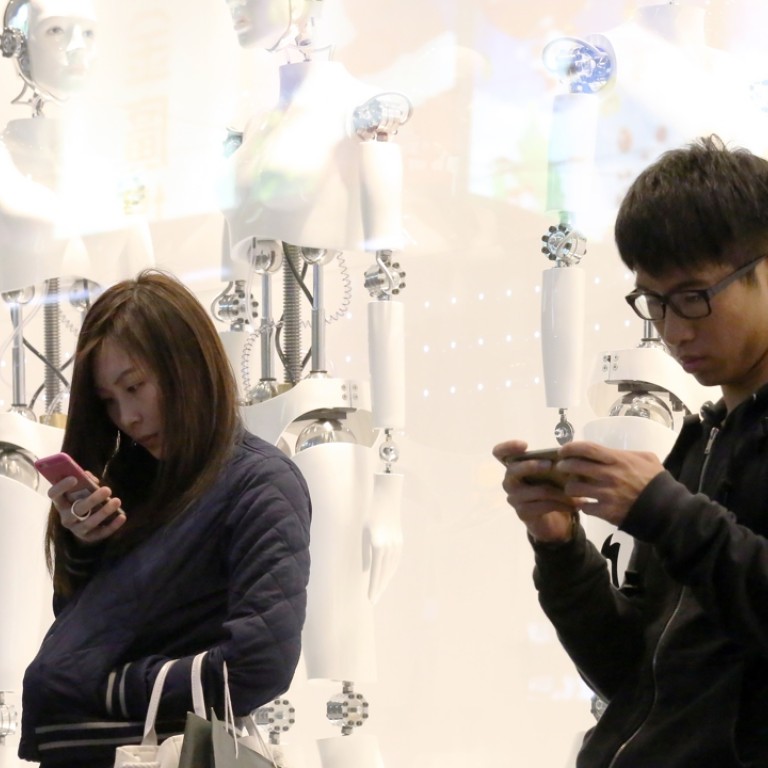
Plenty of tech innovations in store for 2016
It may be the ‘year of the wrist’
Shortly before Christmas, a photograph of a family entitled “Visiting Grandma” circulated via email.
It showed an old lady looking bemused, surrounded by her happy family, each hunched in a posture of prayer over their smart devices. On Boxing Day, my brother sent me a photograph of the whole family adopting the same position – including my 85-year-old mother, peering intently at her iPad mini, one finger hovering purposefully.
The outright share price winners in a straight race in 2015 were the global personal technology companies. Amazon was up an amazing 122 per cent; Google, now known as Alphabet, soared 49 per cent; Facebook rose 36 per cent; and Tencent was up 35 per cent. These price movements illustrate the grip that technology has on our lives and that of the market.
Most of these big companies have been making steady acquisitions, which are now bearing fruit. Microsoft owns Hotmail, Skype and a stake in Apple and Expedia. Facebook picked up Instagram, Lightbox, Oculus and WhatsApp. Alphabet boasts the Android operating system, Google Search, and YouTube. Analysts said this week that YouTube is now worth twice the value of Netflix and accounts for 15 per cent of Alphabet’s revenues. The key to YouTube’s growth is that it is largely free, although Amazon and others are seeking to charge for premium services that used to be free.
Part of the success of these tech monsters is because their youthful business models have themselves adapted to change
The laggard is Apple, which led its competitors in cornering its own ecosystem of hardware, software and retail ware. It is in consolidation mode with US$200 billion of cash burning a hole in its pocket but with an enormous opportunity to do something special.
Part of the success of these tech monsters is because their youthful business models have themselves adapted to change. Amazon began as an online bookshop – but is now the nearest thing to an online department store, selling a wide variety of products. Books pioneered online marketing, payment and distribution and provided a platform for anyone to use.
There is an increasing trend of shops becoming owned by the online providers – the Internet Plus idea that is illustrated by Alibaba’s US$7 billion tie up last year with electronics retailer Suning. Recent figures suggest that as much as one-third of clothing bought through the internet is returned – and that doesn’t include the T-shirt you gave your brother for Christmas that you couldn’t be bothered to return. Returns themselves are big business, tying up cash and driving further impulse buying through the return process. Internet Plus allows customers to see the products in Suning, buy them from Alibaba, and take the returns back to Suning; using the advantages of both online and offline shopping. Shops could develop into megastores; a shopping experience with shelves of goods to sample as a physical window to online shopping, perhaps combined with coffee, books and entertainment.
As if to mock the big innovations of the past 25 years, there are still many just around the corner. 2016 may be the “year of the wrist” with a flurry of digital wrist jewellery. The most commonly downloaded free application from the Apple Store this Christmas was for the Fitbit – the device that tells you when you are asleep, exercising, and burning calories. I was never going to swap my Breitling for a clunky piece of digital plastic until I found a GPS enabled jogging watch that tells me that a 7.25km run up and down Mount Butler (274 metres vertically) is the same calorific value as a cream cake – at least they neutralise each other.
2016 is going to give us visibility on what life will be like in the twenties. Driverless cars are here to stay, the first one having been ticketed by a policeman. They would be here faster if it were not for the regulators – lucky for Karl Benz that he did not have to deal with them. The electric car is invading Hong Kong’s roads, despite being invented and abandoned in the 1830s by Robert Anderson, as being heavy, expensive and requiring constant charging. Hoverboards could develop as a real alternative to walking around Central. Drone technology has revolutionised warfare and is likely to do the same to our peaceful lives. 2016 will see more virtual reality technology, more smartphone apps controlling our lives, and new processes like paying our bills and monitoring our health becoming the norm.
The unspoken negatives are a rapid decline in privacy and security. The GPS already identifies our movements to an arm span’s accuracy. You can be sure that 2016 will bring bigger and more frightening cyber security breakdowns than ever before. The next tech company investment surge may be in that sector – just to protect what we have.
Richard Harris is chief executive of Port Shelter Investment Management

